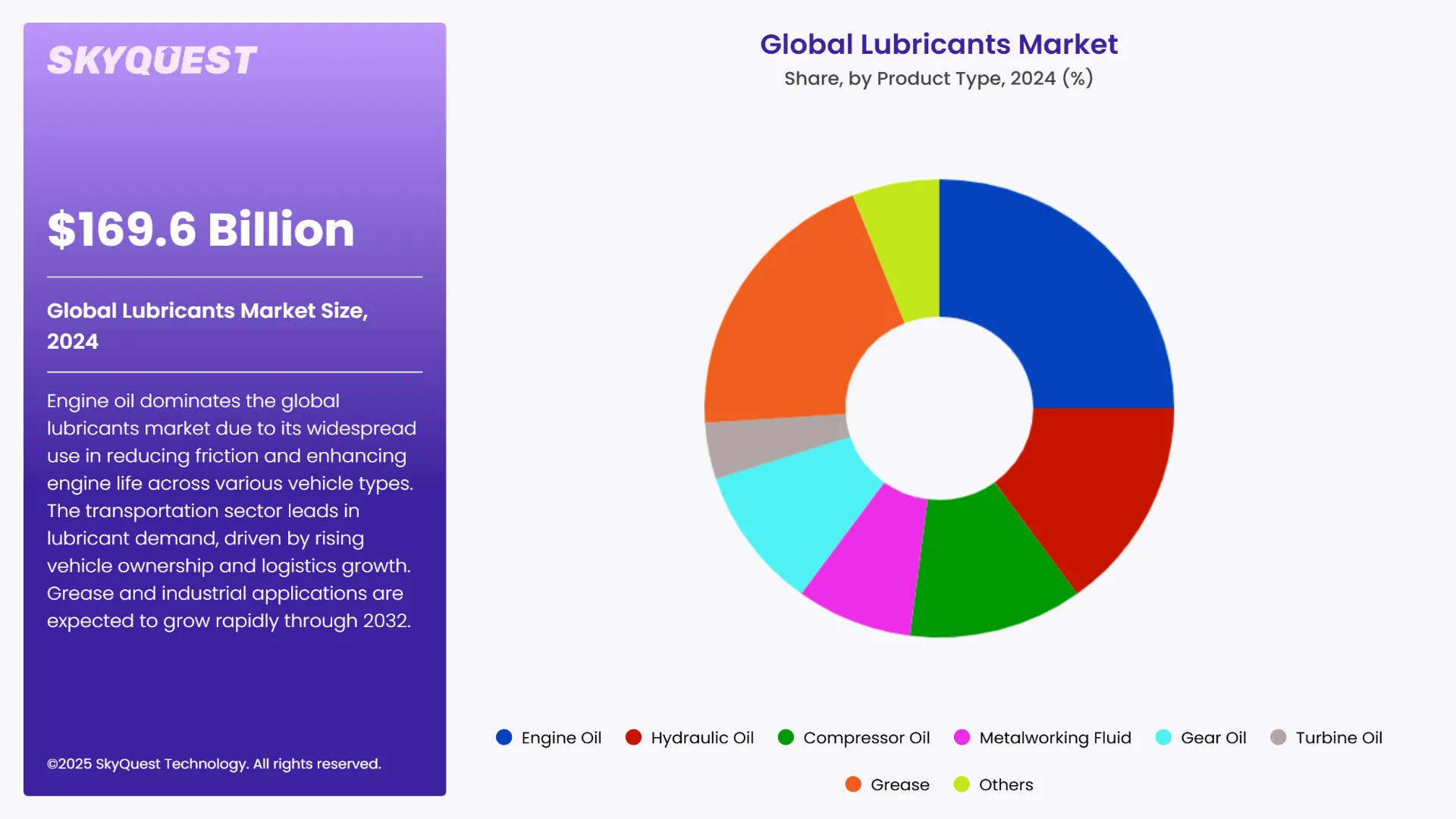Have you ever wondered what keeps your vehicle running smoothly, mile after mile? The secret lies in something you might overlook—lubricants.
These special fluids play a crucial role in how well your engine performs, how long your vehicle lasts, and even how much fuel you use. Understanding the role of lubricants can help you protect your investment and avoid costly repairs.
Keep reading to discover how the right lubricants can boost your vehicle’s performance and save you money in the long run.

Credit: gandharoil.com
Lubricants And Engine Efficiency
Lubricants play a key role in how well a vehicle’s engine runs. They help keep engine parts moving smoothly.
Good lubricants reduce damage and improve the engine’s power and lifespan.
Reducing Friction And Wear
Lubricants form a thin layer between moving parts. This layer stops metal parts from rubbing directly.
Less friction means parts wear down slower. This keeps the engine in good shape for a longer time.
- Protects engine parts from damage
- Prevents overheating from friction
- Keeps engine running smoothly
Enhancing Fuel Economy
Lubricants help the engine use fuel more efficiently. They reduce energy lost to friction inside the engine.
This means the vehicle needs less fuel to run well. Good lubricants can save money on gas over time.
- Lower friction saves fuel
- Cleaner engine parts improve performance
- Stable lubricant quality helps engine last longer
Types Of Vehicle Lubricants
Lubricants help vehicles run smoothly by reducing friction. They protect parts from wear and tear. Different parts need different lubricants.
Choosing the right lubricant keeps the vehicle working well and lasting longer. This guide explains the main types of vehicle lubricants.
Engine Oils
Engine oils lubricate the engine’s moving parts. They reduce heat and prevent metal parts from rubbing together. Engine oils also help clean the engine.
- Conventional Oil: Basic oil for normal driving conditions.
- Synthetic Oil: Made for high performance and extreme temperatures.
- High-Mileage Oil: Designed for older engines with more wear.
- Blend Oil: Mix of conventional and synthetic oils.
Transmission Fluids
Transmission fluids keep the transmission system working well. They lubricate gears and help with smooth shifting. They also cool the transmission parts.
| Type | Use | Key Feature |
| Automatic Transmission Fluid | Automatic gearboxes | Friction control and cooling |
| Manual Transmission Fluid | Manual gearboxes | High pressure resistance |
| Continuously Variable Transmission Fluid | CVT systems | Special friction properties |
Greases And Specialty Lubricants
Greases protect parts that need thick lubrication. They stay in place and resist water. Specialty lubricants serve unique needs in vehicles.
- Multipurpose Grease: For general lubrication on joints and bearings.
- High-Temperature Grease: Used in parts exposed to heat.
- Silicone Grease: Protects rubber and plastic parts.
- Dry Lubricants: Reduce friction without attracting dust.
Impact On Vehicle Longevity
Lubricants play a key role in keeping vehicles running longer. They protect engine parts and help avoid damage from wear and tear.
Good lubrication reduces friction and helps engines work smoothly. This lowers the chance of costly repairs and extends vehicle life.
Preventing Corrosion And Deposits
Lubricants contain additives that stop rust and corrosion inside the engine. They also prevent harmful deposits from building up on parts.
- Protect metal surfaces from moisture
- Neutralize acids formed during combustion
- Keep engine parts clean and free from sludge
- Reduce oxidation that causes wear
Maintaining Optimal Engine Temperature
Lubricants help engines stay cool by carrying heat away from moving parts. This prevents overheating and keeps the engine at a safe temperature.
| Function | Benefit |
| Heat transfer | Keeps engine parts from overheating |
| Friction reduction | Less heat generated in engine |
| Oil circulation | Distributes heat evenly |

Credit: www.gz-supplies.com
Choosing And Maintaining Lubricants
Lubricants keep vehicle parts moving smoothly. They reduce wear and tear on engines and other systems.
Choosing the right lubricant and keeping it in good condition helps your vehicle last longer.
Selecting The Right Lubricant
Use lubricants that fit your vehicle’s engine type and driving needs. Check the owner’s manual for guidance.
Consider viscosity, additives, and oil type like synthetic or conventional. These affect engine protection and fuel efficiency.
- Choose oil with the right viscosity grade (e.g., 5W-30)
- Pick synthetic oil for better performance in extreme temperatures
- Use additives that improve engine cleanliness and reduce wear
- Follow manufacturer recommendations closely
Regular Oil Changes And Monitoring
Change oil at regular intervals to keep the engine clean and lubricated. Old oil loses its ability to protect parts.
Check oil levels often. Low oil can cause engine damage. Use the dipstick to monitor oil condition and quantity.
- Change oil as recommended by the vehicle manufacturer
- Replace oil filter with each oil change
- Check oil color and texture; dark or gritty oil needs changing
- Watch for leaks or unusual engine noises

Credit: www.skyquestt.com
Frequently Asked Questions
What Role Do Lubricants Play In Engine Performance?
Lubricants reduce friction between engine parts, keeping the engine smooth and efficient.
How Do Lubricants Improve Fuel Efficiency In Vehicles?
Lubricants lower engine friction, which helps the engine use less fuel and run better.
Why Is Regular Oil Change Important For Vehicle Performance?
Changing oil removes dirt and keeps the engine parts well-lubricated, preventing wear and tear.
Can Poor Quality Lubricants Harm Your Vehicle Engine?
Yes, low-quality lubricants can cause engine damage by not protecting parts properly.
How Do Lubricants Affect Vehicle Lifespan?
Good lubricants reduce wear, helping the vehicle last longer and need fewer repairs.
Conclusion
Lubricants keep your vehicle running smoothly and safely. They reduce friction and wear inside the engine. This helps improve fuel efficiency and engine life. Clean and proper lubrication prevents overheating and damage. Regular oil changes protect your vehicle’s parts. Using the right lubricant matches your vehicle’s needs.
Good lubrication means better performance and fewer repairs. Take care of your engine by choosing quality lubricants. Simple steps keep your vehicle reliable and strong. Lubricants truly play a key role in vehicle health.

